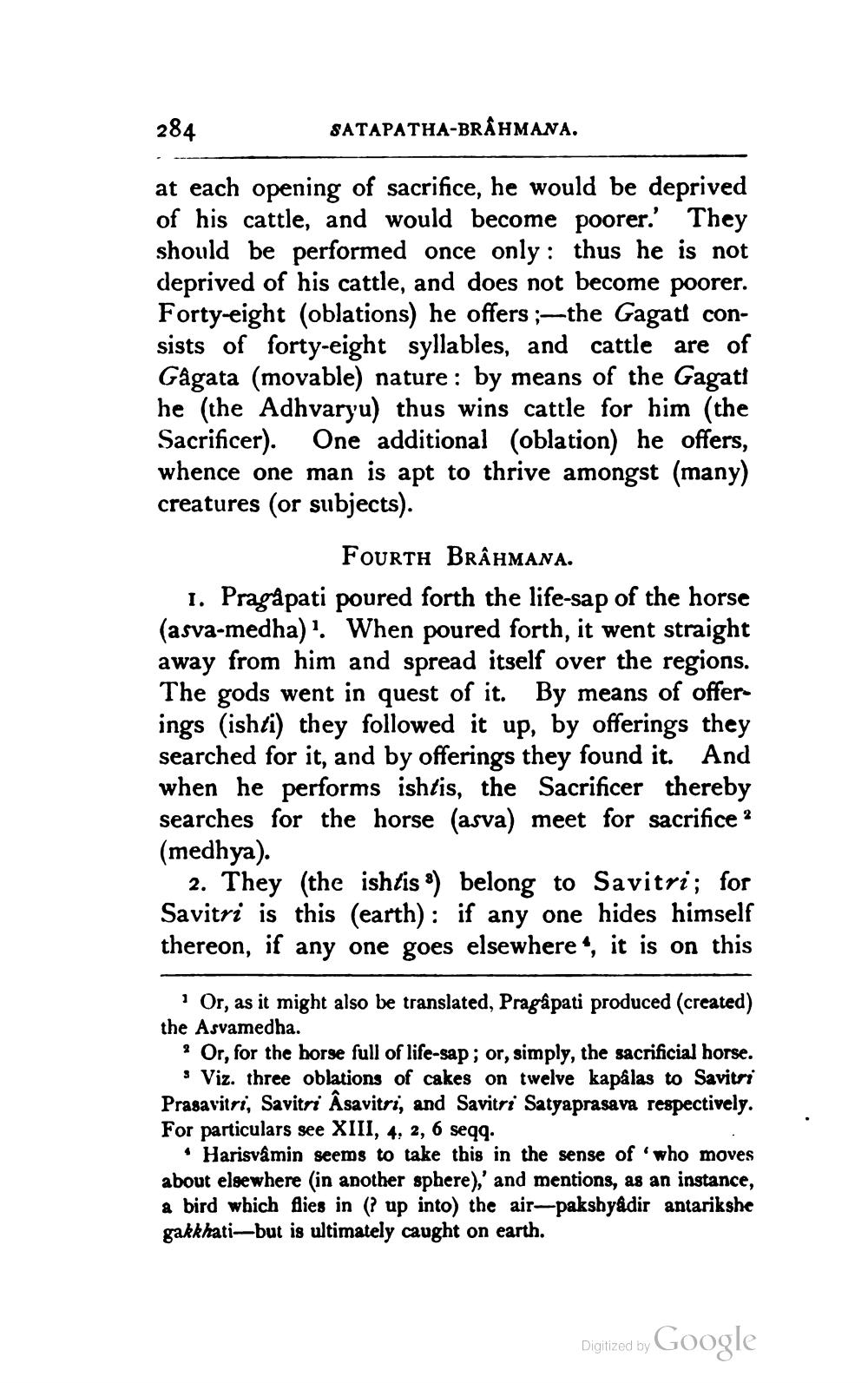________________
284
SATAPATHA-BRAHMANA.
at each opening of sacrifice, he would be deprived of his cattle, and would become poorer. They should be performed once only: thus he is not deprived of his cattle, and does not become poorer. Forty-eight (oblations) he offers ;-the Gagati consists of forty-eight syllables, and cattle are of Gågata (movable) nature: by means of the Gagati he (the Adhvaryu) thus wins cattle for him (the Sacrificer). One additional (oblation) he offers, whence one man is apt to thrive amongst (many) creatures (or subjects).
FOURTH BRAHMANA. 1. Pragapati poured forth the life-sap of the horse (asva-medha)?. When poured forth, it went straight away from him and spread itself over the regions. The gods went in quest of it. By means of offer ings (ishti) they followed it up, by offerings they searched for it, and by offerings they found it. And when he performs ishtis, the Sacrificer thereby searches for the horse (asva) meet for sacrifice ? (medhya).
2. They (the ishtis 8) belong to Savitri; for Savitri is this (earth): if any one hides himself thereon, if any one goes elsewhere“, it is on this
Or, as it might also be translated, Pragâpati produced (created) the Asvamedha. ? Or, for the horse full of life-sap; or, simply, the sacrificial horse.
Viz. three oblations of cakes on twelve kapalas to Savitri Prasavitri, Savitri Asavitri, and Savitri Satyaprasava respectively. For particulars see XIII, 4, 2, 6 seqq.
• Harisvâmin seems to take this in the sense of who moves about elsewhere in another sphere),' and mentions, as an instance, a bird which flies in (? up into) the air-pakshyâdir antarikshe gakkhati—but is ultimately caught on earth.
Digitized by Google




